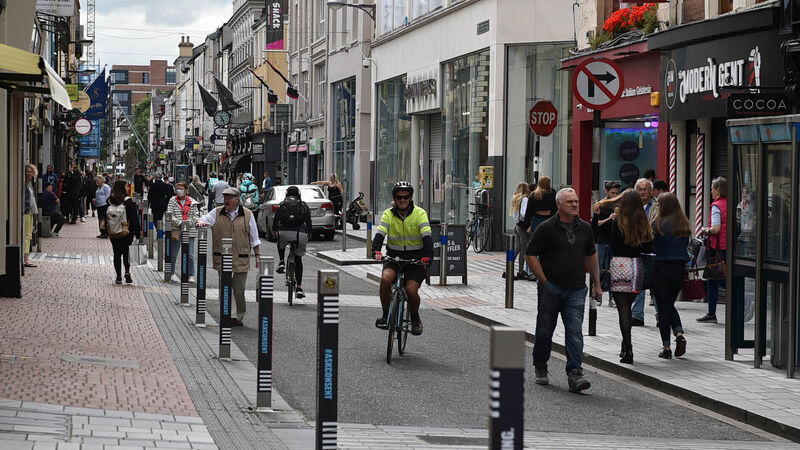Consumer sentiment drops as 'households face €2,000 hit from surging prices'

Shoppers on Cork's Oliver Plunkett St. Picture: Eddie O'Hare
Consumer confidence is plummeting at the fastest rate since the onset of the Covid pandemic two years ago, as households face an average hit of €2,000 to their living standards from soaring energy and food prices, a major survey has unveiled.
The findings of the KBC Bank survey adds to evidence that living standards face an extraordinary challenge as fears grow that the Russian invasion of Ukraine will lead to inflation getting out of control.














